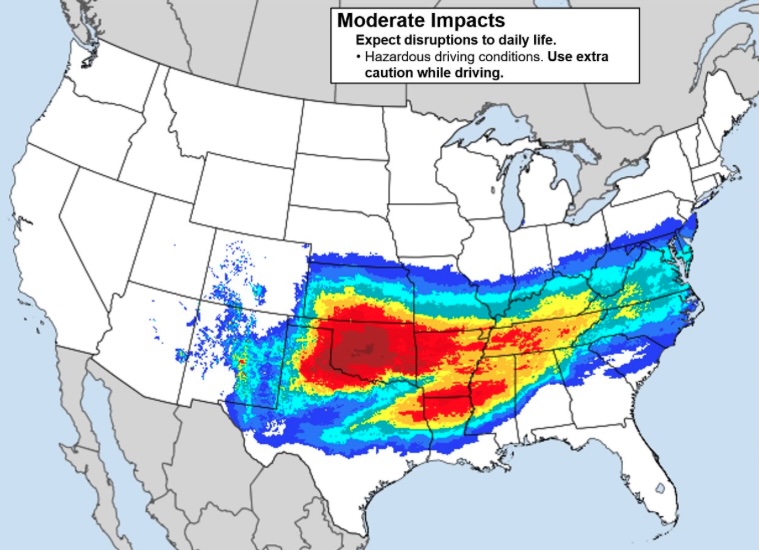What does the Constitution’s call to “promote the general Welfare” mean for healthcare today?
PRAY FIRST for God to grant wisdom for local, state, and federal leaders making healthcare decisions.
First of all, then, I urge that supplications, prayers, intercessions, and thanksgivings be made for all people, for kings and all who are in high positions, that we may lead a peaceful and quiet life, godly and dignified in every way. 1 Timothy 2:1–2
Americans hold a wide range of opinions about healthcare access, affordability, government responsibility, and more. But regardless of those positions, one foundational question remains: What is the proper role of the government when it comes to public health?
The Constitution and the Call to “Promote the General Welfare”
The phrase “promote the general Welfare” appears in both the Preamble and Article I, Section 8 of the U.S. Constitution. While the document doesn’t explicitly guarantee healthcare as a right, many legal scholars argue that this clause provides a basis for federal involvement in public health. Historically, this role has expanded over time, particularly with the introduction of Medicare and Medicaid in the 1960s, and later with the Affordable Care Act.
Federal efforts to protect public health have generally been justified under the Spending Clause, which allows Congress to allocate funds for programs deemed in the interest of national well-being. This includes initiatives like the Centers for Disease Control and Prevention (CDC), the Children’s Health Insurance Program (CHIP), and federally funded clinics for underserved areas.
Is the Landscape of Access Uneven?
Even with these programs in place, healthcare access is not necessarily equal across the country. Rural hospitals are closing at high rates, underserved communities and working-class families often face greater hurdles in accessing care, including lack of insurance, transportation, and culturally competent providers.
Prescription drug costs have also increased, with many Americans forced to choose between medication and other essentials. Emergency rooms are increasingly used for primary care by the uninsured, which is costly and an inefficient alternative to regular medical care. While healthcare coverage has increased over the last decade, many still fall through the cracks.
Public Health as a Public Good
This raises deeper civic and ethical questions. Should healthcare be considered a basic public service like education, water, or public safety? If the government is tasked with safeguarding life and liberty, does that responsibility extend to ensuring citizens can receive medical care without financial devastation?
Historically, public health efforts—like containing infectious disease outbreaks or ensuring clean drinking water—have received bipartisan support. However, debates around healthcare often become politicized, especially when they intersect with federal funding or regulation of private industry.
The Latest in Healthcare Policy
In 2019, President Trump issued an executive order introducing healthcare price transparency rules, which took effect in 2021. However, by late 2024, compliance remained low, with only 21.1% of hospitals fully adhering to the requirements. In response, Congress introduced the Lower Costs, More Transparency Act (H.R. 5378) in 2023—a bipartisan effort to strengthen transparency and regulate pharmacy benefit managers (PBMs). The bill required hospitals, labs, and insurers to disclose actual prices, allowed employers to audit PBM contracts, standardized Medicare payments across care settings, and extended funding for key public health programs like the National Health Service Corps and teaching health centers.
Although the bill passed the House with strong bipartisan support, it stalled in the Senate before the end of the 118th Congress. Many of its provisions, especially those related to price transparency and PBM reform, remain popular and could be reintroduced. President Trump signed a new executive order in February 2025 titled “Making America Healthy Again by Empowering Patients.” This order strengthens enforcement of the transparency rules, mandates standardized and machine-readable pricing formats, and closes loopholes that previously allowed hospitals to post estimates instead of actual prices.
Why It Matters and How We Can Respond
Healthcare access isn’t just a policy issue. It reflects how we view one another. Scripture offers clear reminders to care for the sick, bear one another’s burdens, and seek the good of all. This does not mean agreeing on every solution, but it does mean that we should strive to be attentive to those whose suffering is overlooked.
We should feel empowered to ask difficult questions and seek truth in the clutter of political messaging. We can advocate for federal transparency in how healthcare dollars are spent, learn about Medicaid and other safety-net programs in our states, support community clinics and ministries offering affordable care, and, most importantly, pray for those making difficult medical decisions under financial strain.
Not everyone will agree on the mechanics of reform, but few would argue against the need for a system that serves people with dignity.
Jesus’ ministry regularly included acts of healing, not only as miracles, but as signs of restoration. While today’s healthcare systems are far removed from the time and setting of the Gospels, compassion can still guide our engagement. Being informed, participating in public dialogue, and supporting local efforts to improve care are all ways we can respond.
HOW THEN SHOULD WE PRAY:
— Pray for those in need of medical care and for their needs to be met and their dignity preserved. I was naked and you clothed me, I was sick and you visited me… Truly, I say to you, as you did it to one of the least of these my brothers, you did it to me. Matthew 25:36, 40
— Pray for God to spur the heart of the Church so that we would rise as a place of healing and practical help in its communities. If you pour yourself out for the hungry and satisfy the desire of the afflicted, then shall your light rise in the darkness and your gloom be as the noonday. Isaiah 58:10
CONSIDER THESE ITEMS FOR PRAYER:
- Pray for wisdom, compassion, and integrity in our national leaders as they shape healthcare policies.
- Pray for discernment and civic engagement of citizens regarding our healthcare legislation and policy.
- Pray for the sick and hurting among us to receive healing and resources.
Sources: U.S. National Archives, Public Health Reports, New England Journal of Medicine, Kaiser Family Foundation, Congress.gov









